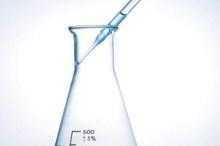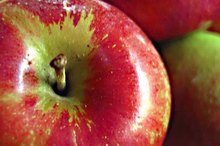What Is Sodium Stearoyl Lactylate?
Sodium stearoyl lactylate, better known as SSL, is a food additive that has several qualities desired by food producers 12. It helps strengthen dough, mixes liquids and oils together, and it can even replace some fat and sugar. It is used in a variety of commercially baked goods and processed foods, including breads, sour cream, salad dressings, soups, cheese products, crackers, cookies and puddings.
Emulsifier
In bread products, the addition of an emulsifier improves water absorption, allowing manufacturers to get more loaves from the same amount of ingredients. It also improves the efficiency of fermentation and slicing of the finished bread product. Some believe it also improves taste. SSL is an excellent emulsifying agent because it maintains the suspension for a long period of time.
- In bread products, the addition of an emulsifier improves water absorption, allowing manufacturers to get more loaves from the same amount of ingredients.
- It also improves the efficiency of fermentation and slicing of the finished bread product.
Foaming Agent and Foam Stabilizer
How to Use Amylase in Baking
Learn More
SSL's ability to create and trap air bubbles allows it to act as a foaming agent. Some familiar, natural foaming agents include egg whites and heavy cream, which trap air bubbles and transform into fluffy foams when they're whipped. SSL is also used as a whipping agent that produces fluffiness in artificial whipped cream, icings and fillings.
Strengthens Dough
As a dough conditioner, SSL makes the gluten in bread stronger and more extensible, meaning the dough is less likely to break or stick during manufacturing. Strengthening the gluten improves the dough's ability to rise, which increases the volume of the finished loaf. It also helps produce softer crumbs and more uniform texture. In the baking industry, SSL is said to improve the ability of the bread to "resist abuse." Frozen breads containing SSL maintain their volume better than those without SSL.
- As a dough conditioner, SSL makes the gluten in bread stronger and more extensible, meaning the dough is less likely to break or stick during manufacturing.
- In the baking industry, SSL is said to improve the ability of the bread to "resist abuse."
Fat Replacer
Purell Hand Sanitizer Ingredients
Learn More
The food industry uses fat replacers to reduce the fat content of products while maintaining similar taste, quality and texture. Some fat replacers, such as olestra, literally replace the fats used during food processing. SSL works differently. It simply reduces the amount of oil needed to achieve the same flavor and consistency.
- The food industry uses fat replacers to reduce the fat content of products while maintaining similar taste, quality and texture.
- It simply reduces the amount of oil needed to achieve the same flavor and consistency.
Sugar Replacer
SSL has a mildly sweet taste, so when it's added to baked goods less sugar is necessary. This quality is especially used in the bread industry to increase flavor and sweetness without adding more sugar. In addition to creating a healthier product, it also helps keeps costs down because the small amount of SSL used costs less than sugar.
Shelf Life Enhancer
When SSL is added to cakes and breads, it slows down the process of becoming stale and hard. It appears to maintain a bread's fresh texture by keeping the amylose starch in its gelled, non-crystallized state. The advantage of SSL as a shelf-life enhancer is that it decreases the rate of staling better than shortening and is much cheaper.
Safety
The Center for Science in the Public Interest and the Material Safety and Data Sheet on SSL report that it's a safe product 3. As an individual chemical, SSL may cause slight skin or eye irritation, and if inhaled in its pure form, it may be slightly irritating to the respiratory tract. However, as a food additive, SSL is not used in the form of the pure chemical, so it is not hazardous or toxic.
Related Articles
References
Writer Bio
Robin Wasserman has been writing and prosecuting biochemical patents since 1998. She has served as a biochemical patent agent and a research scientist for a gene-therapy company. Wasserman earned her Doctor of Philosophy in biochemistry and molecular biology, graduating from Harvard University in 1995.









